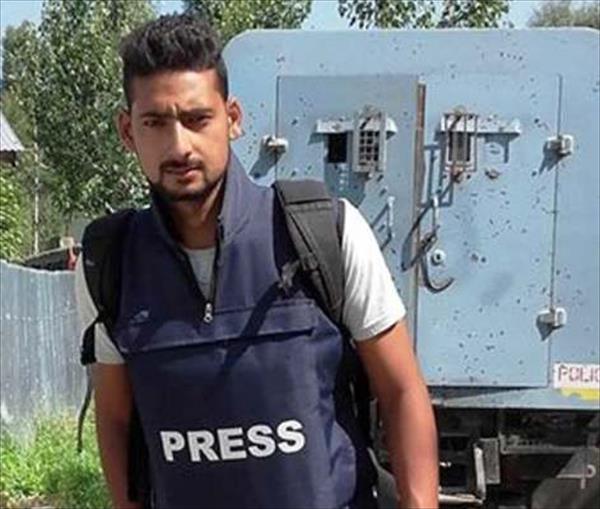Don’t lecture us on how to do our work, say Kashmiri journalists over NIA’s “real journalism” comment

By TwoCircles.net, Staff Reporter
Srinagar: Five days after National Investigation Agency (NIA) submitted documents to the additional sessions court in Delhi to strengthen its arguments against Kamran Yusuf and alleged him of not being a real journalist, Kashmir Working Journalists Association (KWJA) on Tuesday, February 20 condemned the efforts of NIA to define the work of a journalist.
“The pathetic standards of journalism that NIA aims to thrust are not just childishly naive, but also reflect a dangerous conspiracy to disempower the fourth estate,” KWJA said in a statement.
NIA in the documents submitted in the court had mentioned, “Had he been a real journalist/stringer by profession, he may have performed one of the moral duty of a journalist which is to cover activity and happening (good or bad) in his jurisdiction. He had never covered any developmental activity of any Government Department/Agency, any inauguration of Hospital, School Building, Road, Bridge, statement of any political party in power or any other social/developmental activity by the state Government or Govt. of India (sic).”
KWJA said, “it is not the job of a journalist to cover bridge inaugurations or birthday parties of government and political functionaries, and If NIA does not understand the basics that separate PR from journalism, it puts its own investigating capabilities into question.” The Journalist body has further admitted that the fraternity has failed to stand with Yusuf who is in detention for the past 169 days.
“Let us admit that the journalistic fraternity in Kashmir, including us, has failed to stand up for Kamran Yousuf since his arrest on Sept. 5 last year, leave alone strive for his release,” KWJA said. KWJA believes that Kamran’s arrest and framing are aimed only to muzzle the press in Kashmir and that all charges against him are baseless and motivated.
The Kashmir Editors Guild (KEG), which had a marathon meeting on Tuesday has also strongly reacted to the new definition of a journalist given by the NIA. “If the cops are supposed to define the roles and responsibilities of the journalists, which manage the fourth pillar of democracy, the universities that train thousands of journalists in a year across India must be locked,” the members said. “Re-defining journalism is usually been seen as an effort by totalitarian and dictatorial regimes and not democracies,” they added.
KEG reiterated its stand on Kamran Yusuf case that he has been a news photographer who was freelancing with various media outlets. The editors sought his early release.
“It has been a long time since Yusuf’s arrest that the investigators have probed almost all angles of his supposed involvement. So far, nothing has been proved as the charge sheet suggests,” the members said.
“It is high time that Yusuf is permitted to move out of jail and resume his routine and help his mother, the only relation he has, in surviving honourably,” the editors said. “His release will contribute to the strengthening of democracy and right to free speech,” they added.
Reporters Without Borders (RSF) also issued a statement on Tuesday and called for immediate release of Yusuf, who is due to appear before a New Delhi court tomorrow for a decision on his bail application.
“It is not up to the Indian interior ministry to decide what a journalist is supposed to cover,” said the head of RSF’s Asia-Pacific desk Daniel Bastard.
“The contradictory nature of the charges clearly shows that Kamran Yusuf is being used as a scapegoat in order to intimidate journalists who try to document the situation in Kashmir,” he added.
On Monday, September 4, 2017, Kamran Yusuf was asked to report at the local police station in Pulwama district from where he was taken to Srinagar, where NIA formally arrested him the following day.
Yusuf, a resident of Tahab village, located five km from Pulwama town in South Kashmir, used to work for various local media organisations and covered protests, encounters between militants and security forces and funerals of militants who died in the encounters along with covering official functions organised by politicians, bureaucrats, army, and police. In August 2017, Yusuf was named among nine emerging photographers in Jammu and Kashmir by With Kashmir, a digital media company.
The International Federation of Journalists (IFJ) in September 2017 had termed the move by the central agency as an attempt to intimidate the journalist community.
